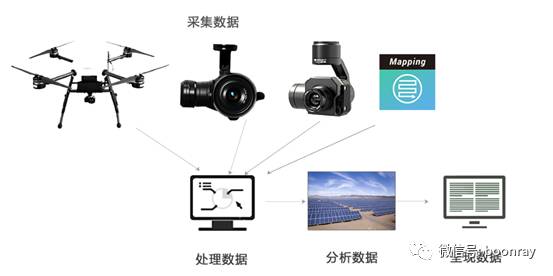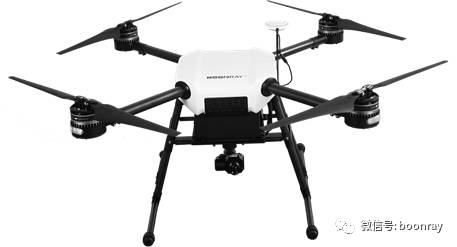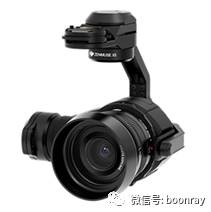Project Parameter Flight platform M6 Shaft distance 805 mm Maximum load weight 4.5kg GPS hover accuracy Vertical: ±0.5 m; level: ±2.5 m Maximum rising speed 5 m/s Maximum falling speed 3 m/s Maximum speed 18m/s Maximum wind speed 10 m/s (sixth level) Maximum flight time 50min Project Parameter Visible light camera X5 Pixel 16 million pixels Photo maximum resolution 4096x2160 ISO range 100~25600 Video resolution 4K Video format MP4/MOV Thermal infrared head camera XT Resolution 640 × 512 Mirror head 19 mm Minimum focal length 15.3 cm Scene range (high gain) -25°C to 135°C Scene range (low gain) -40°C to 550°C Point temperature measurement Center 4×4 temperature measurement Storage Micro SD card Photo format JPEG, TIFF Video format MP4 Corner light ,led Corner light ,Waterproof Corner Light,Bright LED corner light Kindwin Technology (H.K.) Limited , https://www.ktlleds.com
1. Program objectives
The drone is equipped with a visible light camera, a thermal infrared sensor or an EL detecting device, and collects visible light, thermal infrared image or EL data of the photovoltaic component to realize intelligent inspection of the drone, and improve the efficiency and safety of the photovoltaic inspection. The visible light and thermal infrared images are stored in real time and can be quickly exported to the pc end. The UAV intelligent diagnostic software is used to intelligently process the thermal infrared image and the visible light image collected by the drone to realize the component non-power generation detection, dust and dirt blocking, Automated diagnosis and localization of hot spots caused by failure of components such as cracks. Greatly improve the inspection efficiency of the photovoltaic power station and the accuracy of fault diagnosis.
2, drone inspection system
The UAV inspection system includes four parts: the UAV system , the data acquisition system, the ground intelligent control system, and the data analysis and processing system. As shown in Figure 3-1: 
Figure 3-1 UAV inspection system
2.1, UAV system
The UAV system is equipped with an ultra-long-time, industrial-grade multi-rotor U100 with IP56 protection and the latest DJI A3 flight controller with fully optimized attitude analysis and multi-sensor fusion algorithms for precise and reliable integration. High-definition image transmission, real-time view of the camera screen, transmission distance of up to 5 kilometers, picture transfer quality 720P; built-in intelligent battery management system, real-time monitoring of remaining battery power, the system will automatically analyze the calculated amount of return and landing power and Time to avoid the danger caused by insufficient power. At the same time, the 20-minute fast charging function can be realized, and the battery can be fully charged in a short time. The system parameter table is as follows: 
Figure 3-2 UAV System M6
2.2, data acquisition system
The data acquisition system includes visible light collecting obstructions, dust covering conditions, and infrared cameras collecting hot spots. The visible light integrated PTZ camera X5 and the thermal infrared integrated PTZ camera XT are separately arranged. The X5 combines a new image sensor with a powerful processor to capture 4K/30p video and 16 megapixel photos. The XT thermal imaging camera uses a range of FLIR proprietary technologies to reflect subtle temperature differences and make the target clear at a glance. The system parameter table is as follows: 
Figure 3-3 Visible Integrated PTZ Camera X5
The solar photovoltaic power generation system is mainly divided into centralized and distributed. The centralized power station generally covers a large area, most of which are built in the northwestern part of China and some remote areas. The natural environment is relatively bad. The distributed power stations are generally built on roofs, greenhouses and large-area pools. on. However, these photovoltaic power plants have brought a lot of operational and maintenance pressures after grid connection, such as conventional equipment testing and photovoltaic panel inspection. The traditional operation and maintenance method adopts manual inspection, which is inefficient, and most of them are based on the experience of operation and maintenance personnel to identify equipment failures, which are highly prone to deviation. At the same time, in the harsh natural environment of remote areas, the inspection work of photovoltaic power stations is very difficult and dangerous. For photovoltaic areas such as agricultural light complementary, fishing light complementary, rooftop power stations, traditional manual inspections can no longer meet the demand, and it is impossible to achieve safe and efficient PV inspection purposes.